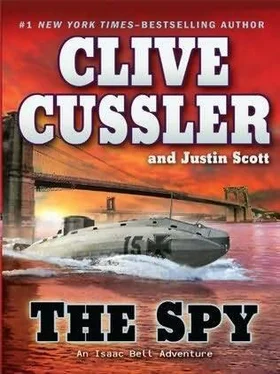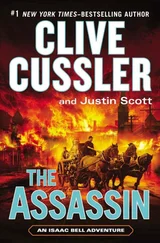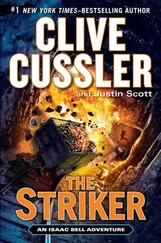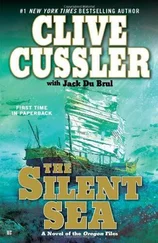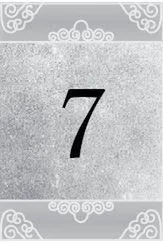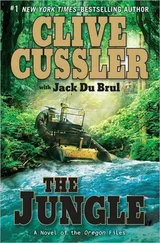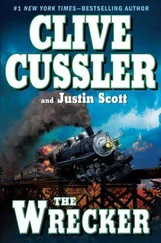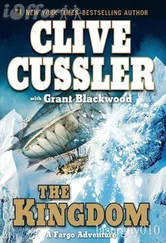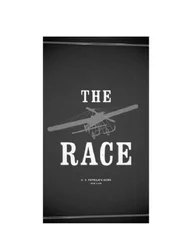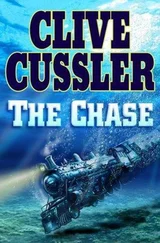ISAAC BELL AND MARION MORGAN MET FOR DINNER AT Rector’s. The lobster palace was as famous for its mirrored green-and-gold interior, its lavish linens and silver, its revolving door-the first in New York-and its glittering patrons as it was for its crustaceans. Situated on Broadway, it was two blocks from Bell’s office in the Knickerbocker. He waited out front under a gigantic statue of a gryphon ablaze in electric lights and greeted Marion with a kiss on her lips.
“I’m sorry I’m late. I had to change clothes.”
“I was, too. I just got done with Van Dorn.”
“I have to at least try to compete with the Broadway actresses who eat here.”
“When they see you in that getup,” Bell assured her, “they will run back to their dressing rooms and blow their brains out.”
They pushed around the revolving door into a brilliant room that held a hundred tables. Charles Rector gestured frantically to the orchestra as he rushed to greet Marion.
The musicians broke into “A Hot Time in the Old Town Tonight,” the title of Marion’s first two-reeler about a detective’s girlfriend who stopped the villain from burning down a town. At the sound of the music, every woman flashing diamonds and every gent dressed to the nines looked up to see Marion. Bell smiled as an appreciative buzz rippled across the restaurant.
“Miss Morgan,” Rector cried, seizing her hands in his. “When last you honored Rector’s you were making newsreels. Now everyone is talking about your moving picture.”
“Thank you, Mr. Rector. I thought the musical accompaniment was reserved for beautiful actresses.”
“Beautiful actresses are a dime a dozen on Broadway. A beautiful moving picture director is as rare as oysters in August.”
“This is Mr. Bell, my fiancé.”
The restaurateur squeezed Bell’s hand and pumped heartily. “My congratulations, sir. I can’t imagine meeting a more fortunate gentleman on the Great White Way. Would you like a quiet table, Miss Morgan, or one where the world may see you?”
“Quiet,” Marion answered firmly, and when they were seated and the Mumm was ordered she said to Bell, “I am astonished he remembered me.”
“Perhaps he read yesterday’s New York Times,” Bell smiled. She was so pleased by her reception, and there was lovely high color in her face.
“The Times? What do you mean?”
“They sent a fashion reporter to the Easter Parade last Sunday.” He unfolded a clipping from his wallet and read aloud:
“ ‘One young woman, who strolled after tea from Times Square to the Fifth Avenue parade, caused a sensation. She wore lavender satin and a black, plume-laden hat, the size of which caused men to step aside to give her room to pass. This dazzling creature walked as far as the Hotel St. Regis, and then departed toward the north in a red Locomobile motorcar.’
“And speaking of red, your ears are.”
“I am mortified! They make it sound as if I were sashaying up Fifth Avenue seeking attention. Every woman there was dressed up for Easter. I only wore that hat because Mademoiselle Duvall and Christina bet me ten dollars I didn’t have the nerve.”
“The reporter got it all wrong. You were attracting attention. Had you been seeking it, you would not have skedaddled in that red Locomobile but would have sashayed up and down the avenue until dark.”
Marion reached across the table. “Did you see this strange article on the other side?”
Bell turned it over. “Lachesis muta? Oh, yes. He’s a doozy of a snake. Dripping deadly venom and mean as a hanging judge. You know, the Cumberland Hotel is only ten blocks up Broadway. I’ll bet I can talk my way into a Pathology Society meeting with a pretty girl on my arm, if you want to go see him.”
Marion shuddered.
When the champagne arrived, Bell raised his glass to her. “I’m afraid I can’t say it better than Mr. Rector. Thank you for making me the most fortunate gent on the Great White Way.”
“Oh, Isaac, it’s so good to see you.”
They sipped the Mumm and discussed the menu. Marion ordered Egyptian quail, declaring she had never heard of such a bird, and Bell ordered a lobster. They would start with oysters, “Lynnhavens from Maryland,” their waiter assured them, “big ones sent up special for Mr. Diamond Jim Brady. If I may recommend, Mr. Bell, Mr. Brady usually follows his lobsters with some ducks and a steak.”
Bell demurred.
Marion took his hand across the table. “Tell me about your work. Will it keep you in New York?”
“We’ve landed a spy case,” Bell answered in a low voice no one else could hear over the stir of laughter and music. “It’s tangled up in the international dreadnought race.”
Marion, accustomed to him revealing case details to her to hone his own thoughts, replied in the same level tone. “Rather different than bank robbers.”
“I told Joe Van Dorn: international or not, if they kill people they are first and foremost murderers. At any rate, Joe will fort up in Washington, and he’s given me the New York office and carte blanche to dispatch operatives around the country.”
“I presume it has to do with the naval gun designer whose piano blew up.”
“It’s looking more and more that it was not a suicide but a diabolical murder deliberately staged to appear to be suicide. And in such a bizarre way as to discredit the poor man and the entire gun system he developed. Of course, the hint of bribery taints everything he touched.”
Bell told her his doubts about Langner’s suicide note, and his conviction that the Washington Navy Yard prowler seen by old John Eddison had indeed been Japanese. He told her how the deaths of the armor expert and the fire-control expert had been originally presumed to be accidents.
Marion asked, “Did anyone see a Japanese man in the Bethlehem Iron Works?”
“The men I sent out there report that someone was seen running off. But he was a big fellow. Over six feet. Pale. Fair-haired. And thought to be German.”
“Why German?”
“Apparently as he ran for it he was heard to mutter, ‘Gott im Himmel!’”
Marion cocked an exquisitely skeptical eyebrow.
“I know,” said Bell. “It’s thin stuff.”
“Was either a pale, fair-haired German or a Japanese seen with Grover Lakewood, who fell off the cliff?”
“The Westchester County coroner told my man that no witness saw Lakewood crash to the ground. Lakewood had told friends he was spending the weekend practicing rock climbing, and his fatal head injuries were consistent with a climbing accident. Poor devil fell a hundred feet. They buried him in a closed coffin.”
“Was he climbing alone?”
“An old lady said she saw him shortly before the accident with a pretty girl.”
“Neither German nor Japanese?” Marion asked with a smile.
“A redhead,” Bell smiled back. “Presumably Irish.”
“Why Irish?”
Bell shook his head. “Her features reminded the old lady of her Irish maid. Again, thin stuff.”
“Three different suspects,” Marion observed. “Three different nationalities… Of course, what could be more international than the dreadnought race?”
“Captain Falconer is inclined to blame Japan.”
“And you?”
“There is no question that the Japanese are practiced at spying. I learned that, before the Russo-Japanese War, they thoroughly infiltrated the Russian Far East Fleet with spies who pretended to be Manchurian servants and laborers. When the fighting started, the Japanese knew more about Russian Navy tactics than the Russians did. But I’m keeping an open mind. It really could be any one of them.”
“A tall, handsome detective once told me that skepticism was his most valuable asset,” Marion agreed.
Читать дальше
